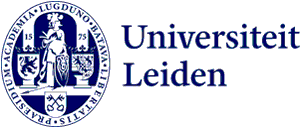
Students advise international organisations: 'I mainly learned how to communicate'
Twelve weeks of hard work later, the big moment has finally arrived: the third-year students of International Studies are ready to complete the 'Practising International Studies' (PRINS) consultancy programme by pitching their advice. We were invited to attend the presentations on behalf of Free Press Unlimited.
PRINS aims to teach students how to put their academic skills into practice. In groups, they tackle a consultancy issue from an organisation in the international field. The clients vary from the Ministry of Economic Affairs to the International Union for Conservation of Nature.
The Free Press Unlimited project focused on media in exile: media outlets that can no longer operate from their home countries due to war, censorship, or repression, and therefore continue their activities from another country. ‘Our task was to investigate how the FPU can help these media outlets, and provide them with more long-term security,’ says student Kakra Addo. ‘Our group was responsible for formulating advice in the field of mental health, communication between various media outlets in exile, and ways of improving these outlets’ financing.’
This broad approach to the problem was also noticeable in the other groups. The various groups presented recommendations at all levels, from better international consultation structures to more attention for the social media of a specific newspaper or radio station. ‘I enjoyed seeing how other groups did things very differently, even though we were all answering the same question,’ says Nina Roesdi, who gave the presentation on her group’s behalf.
Communication, communication, communication
At the same time, this variety of perspectives creates perhaps the greatest challenge of the programme: keeping the group together and creating a coherent end product. ‘You really have to communicate well and a lot with each other, even when things are going well,’ Nina explains. ‘Otherwise, there is a chance that everyone will suddenly start doing something different.’
‘My communication skills especially have grown through this project,’ says Malene Solheim. ‘So far, we have mainly learned how to do research. We have had less contact with group work. It takes a lot of coordination to work in such a large group and create a coherent piece together. Fortunately, we had group leaders who really brought the whole project together.’
-

Kakra: 'You take responsibility not only for yourself, but also for others' -

Malene: 'PRINS has inspired me to go for a Master’s programme in Journalism' -

Nina: 'You really have to communicate well and a lot with each other, even when things are going well.' -

-

-

-

-

-

Inspiring challenge
The other students also look back on their project with satisfaction. ‘It was a challenge, but overall I liked it: you take responsibility not only for yourself, but also for others, to make it a project we can all be proud of,’ reflects Kakra.
‘I had never done anything with consultancy before, so I didn't know whether it was my thing, but I really enjoyed it,’ adds Nina. She certainly sees a job as a consultant as a possibility for her. For Malene, the project brought another kind of dream for the future. ‘I was impressed with the way the various media fight for freedom of speech, and how they act as the voice of the people. It has inspired me to go for a Master’s programme in Journalism next year.’
